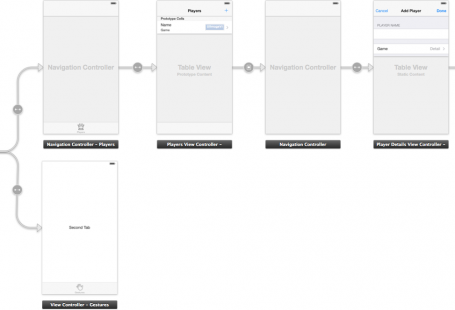Contents:
Look up the meaning of hundreds of trading terms in our comprehensive glossary. One key way of keeping an eye on the value of a currency is to monitor how much inflation it is experiencing. A free, easy-to-use inflation calculator can give you a quick read on that key metric. Please complete this reCAPTCHA to demonstrate that it’s you making the requests and not a robot. If you are having trouble seeing or completing this challenge, this page may help.

Trust banks such as State Street have large operations in currency as they oversee assets in multiple geographies for their clients. Foreign investment banks such as UBS and Deutsche Bank are also market share leaders in the global FX market. The U.S. Dollar remains the world’s reserve currency, meaning that it tends to be the preferred choice for other countries when they wish to hold reserves of fiat money on their balance sheets. Other major international currencies such as the Japanese Yen(¥), Swiss Franc(Fr.), Euro currency(€), and Canadian Dollar also attract substantial interest among currency traders. For contracts not quickly completed, it may be wise to begin adding some sort of inflationary clause to the contract. You could, for example, state that the contract is based on a certain currency ratio and may be adjusted within a certain percentage range based on currency risk or inflation.

Risk can be hedged by pairing the open positions in currencies with the same or precisely opposite foreign exchange movements. The biggest currency trading operations tend to be large investment banks. JPMorgan often leads the league tables for the largest forex trading volume, with other big American investment banks like Goldman Sachs and Citi playing a major role.
Banks in Europe have been authorized by the Bank for International Settlements to employ VaR models of their own design in establishing capital requirements for given levels of market risk. Using the VaR model helps risk managers determine the amount that could be lost on an investment portfolio over a certain period of time with a given probability of changes in exchange rates. An example of an economic risk would be a shift in exchange rates that influences the demand for a good sold in a foreign country. Sometimes known as exchange rate exposure, this is the translation or conversion of the financial statements (such as P&L or balance sheet) of a foreign subsidiary from its local currency into the reporting currency of the parent. This arises because the parent company has reporting obligations to shareholders and regulators which require it to provide a consolidated set of accounts in its reporting currency for all its subsidiaries.
What Does Currency Risk Mean?
If you’re interested in purchasing shares of https://forexdelta.net/-hedged ETFs, first look for an online brokerage that offers commission-free ETF trades. Next, compare individual currency-hedged ETFs to determine which one or ones might be the best fit. For example, consider which type of markets the fund invests in and what strategies the fund uses to drive returns. Also, pay attention to the expense ratio and any other fees you’ll pay to buy or sell shares.
That’s important to know since it can directly affect your investment returns. If you hold investments in a foreign currency then convert them to U.S. dollars, it’s possible that you could either gain or lose, based on the latest currency exchange rates. Many businesses were unconcerned with, and did not manage, foreign exchange risk under the international Bretton Woods system. A common technique to hedge translation risk is called balance-sheet hedging, which involves speculating on the forward market in hopes that a cash profit will be realized to offset a non-cash loss from translation.
What is Currency Risk?
For investors, currency risk commonly arises from the ownership of foreign stocks in one’s portfolio. For example, consider an investor who holds a U.S. brokerage account that owns shares of BT Group plc in London. If the value of the British Pound declines, those shares of BT Group plc will suddenly decline in value in U.S. Foreign exchange risk can be mitigated by entering into offsetting hedging transactions, as well as by insisting that all transactions by conducted in one’s home currency. Another option is to only buy and sell within one’s home country, though doing so can reduce access to better foreign suppliers, while also limiting one’s sales. At Kinettix, Bob leads field services, project management and vendor development organizations.
Knowing the economic risks of a target market is good business advice in any season, especially during periods of inflation. You cannot account for everything, of course, but there is a reason no one builds a franchise during an active civil war. If, when you first purchased your investment the exchange rate stood at $1.50 per £1.00, and today the exchange rate is identical, then yes, it would have increased by 10%. But if the pound slid by 10% to $1.35, your increase would have been completely wiped out. Imagine US aircraft maker Boeing sells an airplane to UK based British Airways for £100 million, which at the moment means $130 million. However, after ninety days, when the invoice must be paid, the pound-dollar exchange rate may have changed.
- Operate round the clock in one or the other country; hence the hedging or speculation is possible anytime.
- The greater the number of currencies and the volumes of money involved, the greater the exposure or, in other words, the greater the potential threat to the company’s profit margins and bottom line.
- The value of your investment in US dollars will depend on the dollar-to-pound exchange rate.
- Currency invoicing refers to the practice of invoicing transactions in the currency that benefits the firm.
The report provides law enforcement examples a number of examples of money laundering offences involving virtual currencies to demonstrate how this payment method has already been abused for money laundering purposes. In reality, the cost of the option premium will depend on the currencies being traded and the length of time the option is taken out for. In the scenario that the USD weakens from €/$ 1.1 to 1.2, then the company would exercise the option and avoid the exchange loss of $10,000 (although would still suffer the option cost of $5,000). In practice, this may be difficult since there are certain costs that must be paid in local currency, such as taxes and salaries, but it may be possible for a company whose business is primarily done online. Forward and options contracts can help in protecting from foreign risk. Currency ETS, i.e., exchange-traded funds, can be used to mitigate the potential risk.
Strategies for Mitigating Currency Risk and Inflation
In the equipment example above, let’s assume the company wishes to take out an option instead of a forward contract and that the option premium is $5,000. Following on from the above example, let’s assume that the US company decides to set up a subsidiary in Germany to manufacture equipment. The subsidiary will report its financials in Euros and the US parent will translate those statements into USD.
ZIPRECRUITER, INC. Management’s Discussion and Analysis of Financial Condition and Results of Operations (form 10-K) – Marketscreener.com
ZIPRECRUITER, INC. Management’s Discussion and Analysis of Financial Condition and Results of Operations (form 10-K).
Posted: Mon, 27 Feb 2023 22:30:10 GMT [source]
These approaches can make hedging against currency risk more complicated, however, so you may want to talk to your financial advisor about which moves to make. Depending on the ETF, they may focus on developed markets, emerging markets or a mix of both. The upside of currency-hedged ETFs is that they can potentially help to reduce your exposure to losses stemming from shifts in currency valuations. Compared to an ETF that invests in foreign currencies or companies but doesn’t use hedging strategies they can be more insulated against volatility.
The value of shares and https://traderoom.info/ bought through a share dealing account can fall as well as rise, which could mean getting back less than you originally put in. CFDs are complex instruments and come with a high risk of losing money rapidly due to leverage. Ian worked for Kerrisdale, a New York activist hedge fund, for three years, before moving to Latin America to pursue entrepreneurial opportunities there. His Ian’s Insider Corner service provides live chat, model portfolios, full access and updates to his “IMF” portfolio, along with a weekly newsletter which expands on these topics.

The time span between the moment the sale is initiated and settled creates currency risk as for the EUR cash flow as the EUR-USD rate fluctuates. Economic exposure is concerned with a firm’s cash flows; it results from combiningoperating exposureand the cash-flow elements oftransaction exposure. Investors will therefore not face any currency risk, because they will not have to invest in dollar denominated or rupee denominated contracts. As a result of higher political and currency risk deterring foreign investors, asset sales occur more commonly in developing countries.
The example below shows the financial performance of the subsidiary in its local currency of Euro. Between years one and two, it has grown revenue by 10% and achieved some productivity to keep cost increases to only 6%. One of the most important features of a hedging platform is that it allows you to manage your exposure by converting it into a gain or loss. With this, accountants use different methods to help protect firms from these types of risks, such as integrating consolidation techniques and effective evaluation procedures. It gives the opportunity of gaining from the favorable exchange rate movement.
Whereas, for a power plant project in the domestic market, the engineering firm wouldn’t have uncertainty around the true economic cost of its expenses denominated in dollars. Institutional investors, such as hedge funds and mutual funds, as well as major multinational corporations, hedge currency risk in the forex market, and with derivatives like futures and options. So, in the world of IT project management, IT deployment, and related service delivery, businesses that work with global clients face elevated currency risk. Paying local installers in another country requires a contract that is almost certainly designated in the workers’ currency, not the company’s. The same is true of ordering parts from local suppliers or renting heavy equipment. Even in companies that decide not to hedge, I would still argue it is necessary to understand the impact of currency movements on a foreign entity’s books so that the underlying financial performance can be analyzed.
If both the importer and exporter want to avoid using their own currencies, it is also fairly common to conduct the exchange using a third, more stable currency. Foreign exchange risk is a financial risk that exists when a financial transaction is denominated in a currency other than the domestic currency of the company. The exchange risk arises when there is a risk of an unfavourable change in exchange rate between the domestic currency and the denominated currency before the date when the transaction is completed. Investor An investor is someone who wants a greater return on their money than bank deposits can… Hedge Whilst at first sounding like something you might find in a garden, in the financial sense,…
But as a whole, it allows the companies to hedge this risk and protect their business from potential losses. If managed successfully, companies can also reap benefits from the exchange rates’ positive movement. Currencies are constantly exposed to fluctuations in exchange rates in the global foreign exchange market, which makes them inherently volatile. However, if that investor hedged his or her position by simultaneously short-selling the euro, then the profit from the euro’s decline would offset the 13% loss upon conversion. In this article, we will take a look at how investors can manage currency risk to protect their portfolio and improve their risk-adjusted returns. Transaction RiskTransaction risk is the uncertainty or loss caused to the contracting party due to a change in the foreign exchange rate or currency risk on delay in settlement of a foreign transaction.
When it comes to a translation exposure, this puts the company’s equities, liabilities, assets or income at risk because the value of exchange rates will fluctuate over time. This happens when a firm denominates a portion of its equities, income, and alike in a foreign currency. While losses due to nonpayment could be covered by export credit insurance, such “what-if” protection is meaningless if export opportunities are lost in the first place because of a “payment in U.S. dollars only” policy. Selling in foreign currencies, if foreign exchange risk is successfully managed or hedged, can be a viable option for U.S. exporters who wish to enter the global marketplace and remain competitive there.
Types of Foreign Exchange Risks
We introduce people to the world of https://forexhero.info/ currencies, both fiat and crypto, through our non-drowsy educational content and tools. We’re also a community of traders that support each other on our daily trading journey. Yield curve control (“YCC”), also sometimes called interest rate pegs, is where bond yields are set by the central bank. Our gain and loss percentage calculator quickly tells you the percentage of your account balance that you have won or lost.
PNC Financial Services : 4Q22 Basel III Pillar 3 Disclosures – Marketscreener.com
PNC Financial Services : 4Q22 Basel III Pillar 3 Disclosures.
Posted: Tue, 28 Feb 2023 15:26:18 GMT [source]
This sort of liability mismatching has contributed to all sorts of panics and crises in emerging markets, such as the fall of various southeast Asian economies in the late 1990s. Currency risk refers to the potential for gains or losses resulting from the fluctuations between various currencies. Currency risk can affect everyone from multinational companies to governments, to tourists on an overseas vacation. So, what can you do to mitigate currency risk and inflation when it comes to service delivery and IT deploymentprojects? Hedging strategies can help business people better control the daily currency fluctuations and enhance planning reliability of their companies.


